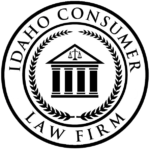An attorney’s dissemination of information related to a case is limited by Idaho Rules of Professional Conduct. In particular, the following rules apply to the sharing of information.
First and foremost is Rule 1.6. This rule prohibits me from sharing any information that would be protected by the attorney-client privilege. Thus, I will not be sharing any of the discussions I have with my client. Likewise, I will not be sharing any of my work product. Really, all I can share is the information that is already on file in public documents.
Another applicable rule is Rule 3.6:
RULE 3.6: TRIAL PUBLICITY
(a) A lawyer who is participating or has participated in the investigation or litigation of a matter shall not make an extrajudicial statement that the lawyer knows or reasonably should know will be disseminated by means of public communication and will have a substantial likelihood of materially prejudicing an adjudicative proceeding in the matter.
(b) Notwithstanding paragraph (a), a lawyer may state:
(1) the claim, offense or defense involved and, except when prohibited by law, the identity of the persons involved;
(2) information contained in a public record;
(3) that an investigation of a matter is in progress;
(4) the scheduling or result of any step in litigation;
(5) a request for assistance in obtaining evidence and information necessary thereto;
(6) a warning of danger concerning the behavior of a person involved, when there is reason to believe that there exists the likelihood of substantial harm to an individual or to the public interest; and
(7) in a criminal case, in addition to subparagraphs (1) through (6):
(i) the identity, residence, occupation and family status of the accused;
(ii) if the accused has not been apprehended, information necessary to aid in apprehension of
that person;
(iii) the fact, time and place of arrest; and
(iv) the identity of investigating and arresting officers or agencies and the length of the investigation.
(c) Notwithstanding paragraph (a), a lawyer may make a statement that a reasonable lawyer would believe is required to protect a client from the substantial undue prejudicial effect of recent publicity not initiated by the lawyer or the lawyer’s client. A statement made pursuant to this paragraph shall be limited to such information as is necessary to mitigate the recent adverse publicity.
(d) No lawyer associated in a firm or government agency with a lawyer subject to paragraph (a) shall make a statement prohibited by paragraph (a).
